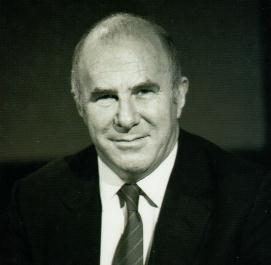We’ve been reading “A Tale of Two Lives Destroyed by Abu Ghraib,” by Marian and Anita Blasberg, which appears in the online English edition of Der Spiegel. It begins with the sort of anecdotal lede that would try our patience if it weren’t so smart and didn’t suddenly blossom into the kind of visceral, detailed reporting we don’t often encounter:
On the day he lost his innocence before the eyes of the world, Sergeant Javal Davis was sitting in the mess hall at Victory Base in Abu Ghraib prison, eating a plate of rice and tuna fish.
It was April 28, 2004. Insurgents were still launching the occasional rocket-propelled grenade at their base near Baghdad, and CNN was broadcasting images from home: basketball, the White House, Wall Street. It was a normal day at Victory Base. But then the room suddenly went still.
There was a man on the screen, his arms spread out and attached to electrical wires, his head covered with a sandbag. The headline read: “Scandal at Abu Ghraib.” Other images followed, images of prisoners on dog leashes, of piles of naked, intertwining bodies.
Someone turned up the volume, and Javal Davis heard the reporter mention his name. A photo from his high-school yearbook flashed across the screen, a picture of a tall black boy with a friendly face and a big smile. Then the Secretary of Defense appeared, talking about seven degenerate soldiers who had brought shame upon the USA.
The story leaps ahead “14 months later” to Newark, N.J., where Davis is sitting in his attorney’s office four months after being released from prison, “the first of the nine soldiers America took to court and charged with dereliction of duty and conspiracy, with assault and sexual humiliation of prisoners.” Davis wonders why his country has punished him and not the higher-ups “responsible for creating the system of torture and abuse.” Leafing through various papers that attest to his character before he went into the military — an employee-of-the-month award, college transcripts, a personal reference — he asks, “Am I a bad person?”

Across the world Hajj Ali, who was released from Abu Ghraib 16 months ago, is sitting on a sofa in a hotel room in Amman, Jordan, with “the curtains drawn,” though it is “a beautiful summer day,” to keep him from seeing the girls “lounging in bikinis at the pool” below his window.
Hajj Ali reaches for a pack of cigarettes with his right hand and uses his lips to extract a Marlboro. Then he starts up his laptop and calls up an Iraqi Web site, albasrah.net, that shows the pictures from Abu Ghraib. He scrolls through the site, pausing occasionally: “Here,” says Hajj Ali, “this is Abu Hudheifa, the imam,
lying in the hallway with his gunshot wounds. Or here, Sabrina Harman, bending over the dead from the shower room.”
Hajj Ali speaks slowly and quietly. His voice sounds a little hoarse.
“Graner,” he says, “that pig.”
Then comes one of the most gripping details you’re liable to read anywhere.
He scrolls down to a picture of a man standing on a box wearing nothing but a black blanket, his upper body bent forward slightly, his arms attached to wires and a hood over his head. Hajj Ali swallows and zooms in on one of the hands. “Look,” he says, “something isn’t right about the hand; it seems injured.”
Hajj Ali says he is convinced that he is the man in this picture.
The story has seven parts, each filled with intimate, chilling revelations about war crimes we think we’ve become familiar with, but which until now have remained distant and hidden, despite all the books and all the column inches already published about them, and impossible to fully appreciate.
 We’ve also been reading our favorite literary critic, Clive James, right, in tomorrow’s unusually rich edition of The New York Times Book Review. His spendid putdown of Elias Canetti’s “Party in the Blitz” offers gems of wit that force us to forgive his conservative leanings. James writes, for example, that the “comparative brevity” of this memoir “should be taken … as its chief virtue.” It is, after all, the work of “a particularly bright egomaniac” who “measured himself against other men according to the adamantine strength of his self-regard,” James notes.
We’ve also been reading our favorite literary critic, Clive James, right, in tomorrow’s unusually rich edition of The New York Times Book Review. His spendid putdown of Elias Canetti’s “Party in the Blitz” offers gems of wit that force us to forgive his conservative leanings. James writes, for example, that the “comparative brevity” of this memoir “should be taken … as its chief virtue.” It is, after all, the work of “a particularly bright egomaniac” who “measured himself against other men according to the adamantine strength of his self-regard,” James notes.On the threshold of death’s door, Canetti saw nothing to be worried about when he examined his conscience. On this evidence, he couldn’t even find it. Instead, he wrote a book fit to serve every writer in the world as a hideous, hilarious example of the tone to avoid when the ego, faced with the certain proof of its peripheral importance, loses the last of its inhibitions.
A warning to bloggers everywhere.
— Tireless Staff of Thousands




